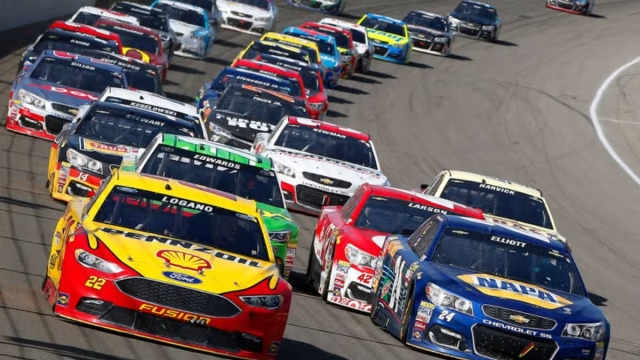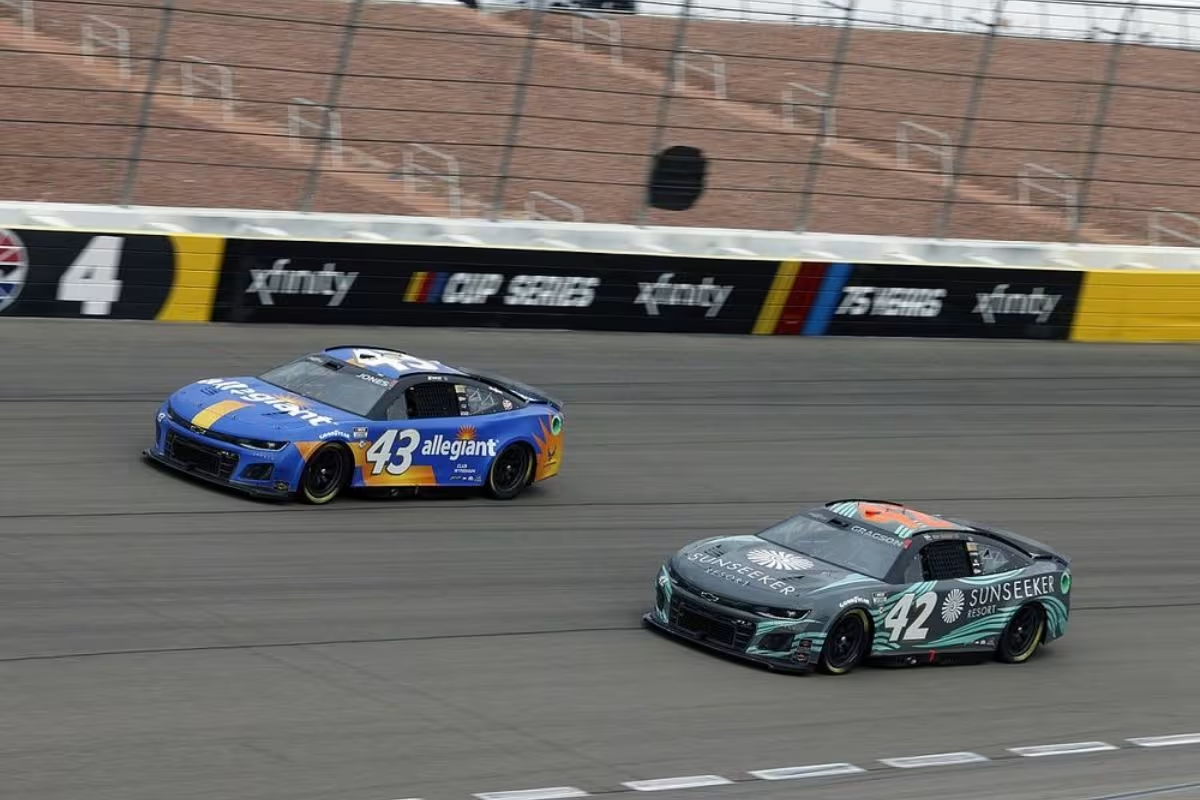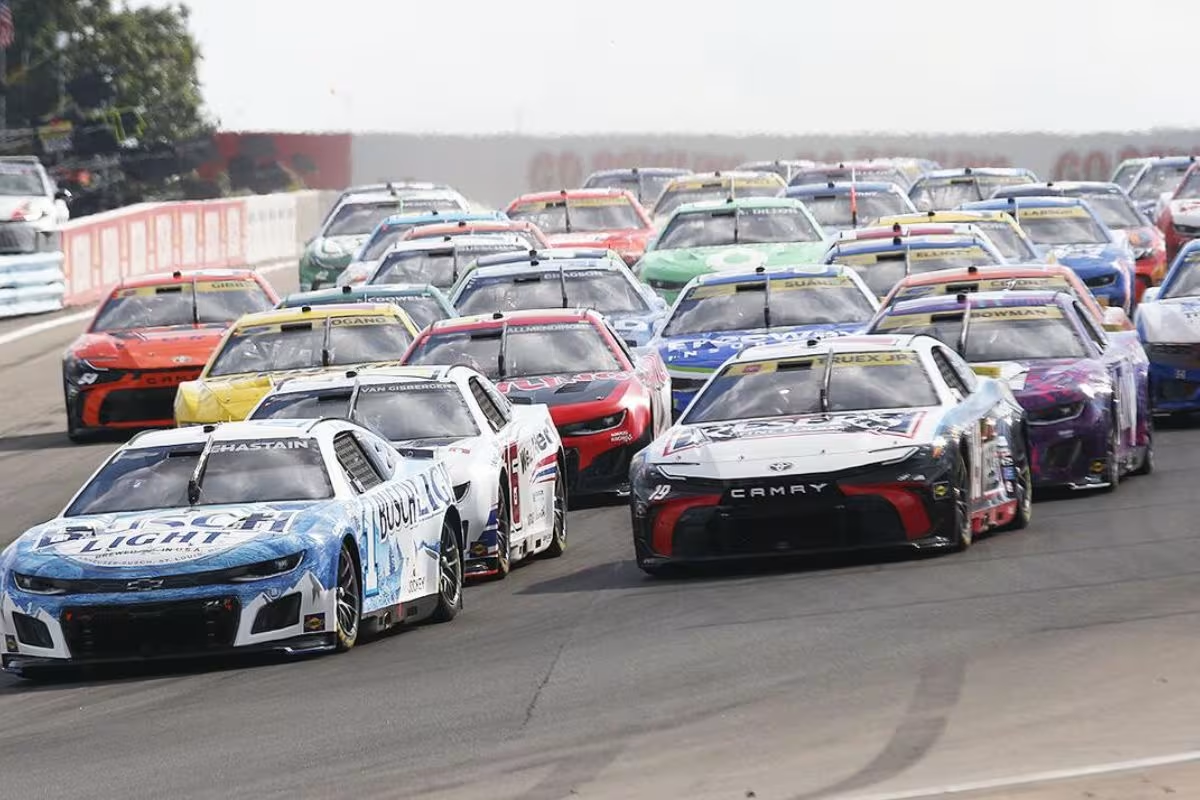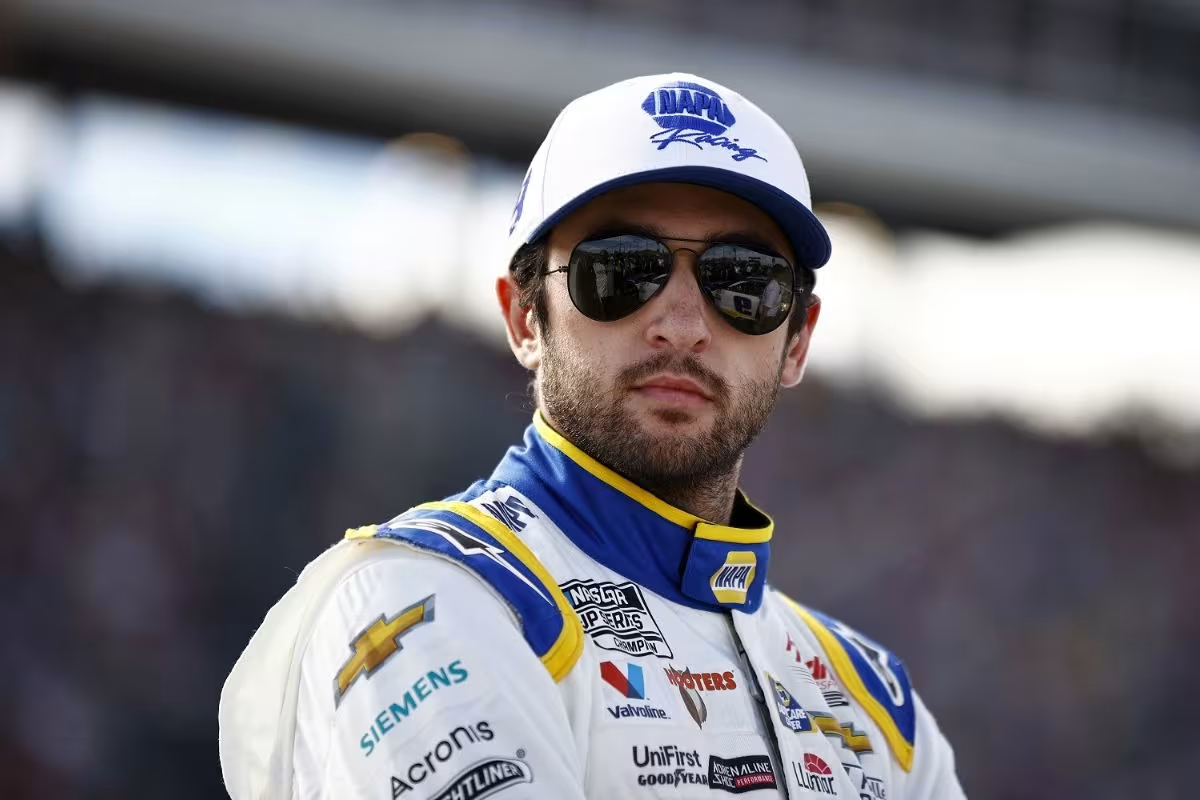NASCAR Favoring Some Drivers Over Others: NASCAR has been in the spotlight recently due to controversy over its Damaged Vehicle Policy (DVP), leaving fans and drivers questioning the fairness of race rulings. Denny Hamlin has been vocal about the flaws in the system, calling out what he sees as favoritism and inconsistency in how the rules are applied. With key drivers like Chase Elliott getting special treatment, Hamlin is wondering if the competition is really as fair as it should be. What’s really going on behind the scenes?
Key Highlights
- Denny Hamlin criticizes NASCAR’s Damaged Vehicle Policy (DVP) for its perceived favoritism towards certain drivers, notably Ryan Blaney and Chase Elliott.
- Inconsistent enforcement of the DVP creates a sense of unfair competition among drivers, undermining trust in NASCAR’s governance.
- Historical favoritism towards Chase Elliott raises concerns about equitable treatment in penalties and playoff eligibility decisions.
- The DVP’s application during multi-car wrecks can lead to competitive advantages for select drivers, complicating race strategies.
- Clear and uniform guidelines are necessary to restore confidence in NASCAR’s competitive integrity and ensure fair treatment for all drivers.
Overview of Recent NASCAR Controversies
Recently, NASCAR has been at the center of several controversies, especially regarding the fairness and integrity of its rules. One key issue is the Damaged Vehicle Policy (DVP), which became a hot topic during the Yellawood 500. The race saw a major pile-up, known as the “Big One,” which highlighted how the DVP was applied.
NASCAR’s decisions about which cars were allowed to repair sparked a lot of criticism. Some drivers, especially Chase Elliott, received permission to fix their cars, while others with similar damage were not given the same chance. This has led to accusations of favoritism and raised concerns about whether all drivers are being treated equally.
This inconsistency has created distrust among drivers and fans, making it hard to believe that the competition is truly fair. It also has bigger implications for the championship standings and the mental game between competitors. Denny Hamlin, for example, has spoken out about his concerns over how the DVP affects his chances, especially as he faces the pressure of elimination.
Denny Hamlin’s Concerns
Denny Hamlin has emerged as a vocal critic of NASCAR’s handling of the Damaged Vehicle Policy (DVP), particularly in the context of recent incidents that he perceives as blatant favoritism. His concerns largely stem from a series of disconcerting DVP rulings that seem to favor certain drivers over others, raising questions about the integrity of the competition.
“I would say that, yeah, certainly there’s gonna be unintended consequences to it right? …When you tow cars back into pit road…when do you open pit road? Do you just wait, wait, wait, then you got some fuel mileage issues, and people need to pit? Next thing you know, a tow truck is sitting in their pit stall.” – Hamlin
Hamlin’s critique centers on four key points:
- Inconsistent Enforcement: The contrasting treatment of Ryan Blaney and Josh Berry, who were both sidelined for vehicle issues, versus the leniency shown to Chase Elliott and Chase Briscoe at Talladega, highlights a troubling disparity in officiating.
- Favoritism Towards Hendrick Motorsports: Hamlin has suggested that the apparent preferential treatment given to Hendrick Motorsports raises concerns about equitable competition.
- Unintended Consequences of the DVP: Hamlin expressed worries about the broader implications of DVP implementation, particularly regarding pit strategies and potential fuel mileage issues during races.
- Impact on Race Dynamics: The decision to tow certain vehicles while others remained stranded complicates race flow and strategy, potentially skewing results in favor of select drivers.
NASCAR’s DVP Terms and Hamlin’s Skepticism
Concerns surrounding NASCAR’s Damaged Vehicle Policy (DVP) have been heightened by the recent clarification of its terms, yet skepticism remains prevalent among drivers, particularly from Denny Hamlin. The DVP stipulates that if a race car sustains flat tires but appears otherwise intact, it will be towed back to the pit stall. Teams are then allotted a seven-minute window to perform necessary tire changes and repairs.
While this framework aims to streamline the management of damaged vehicles, Hamlin articulates reservations regarding its efficacy. Hamlin’s skepticism highlights a critical point: the inherent unpredictability of race conditions. He acknowledges that despite the DVP’s evolution, unforeseen complications are inevitable, suggesting that the policy may not address all scenarios effectively.
His comment, “you just hope that I don’t know,” reveals an acute awareness of the tactical implications of the DVP. In high-pressure situations, such as multi-car wrecks, being the initial to a damaged vehicle could offer a notable competitive edge.
“While this is evolved, it’s going to have kinks in it that we don’t plan for. So you just hope that I don’t know. If there’s a multi-car wreck, you just hope you’re the first one to get to it. Because it certainly will be a big advantage to do.” – Hamlin
This context raises questions about fairness and consistency in policy enforcement. If certain teams or drivers can exploit the nuances of the DVP more effectively than others, it could create an uneven playing field, exacerbating existing tensions within the sport.
Past Favoritism Towards Chase Elliott
Examining the history of NASCAR’s decisions reveals a pattern of favoritism that has often favored Chase Elliott, raising questions about the integrity of the sport. This trend has sparked debate among fans and drivers alike, particularly when contrasting Elliott’s treatment with that of his peers.
- Playoff Eligibility: After Kyle Larson’s rain delay caused him to miss the Coca-Cola 600, he was still granted playoff eligibility, which raised eyebrows regarding the criteria used for such decisions.
- Lack of Penalties: During the Chicago Street Race, Bubba Wallace faced a hefty $50,000 fine for post-race comments, while Elliott, who engaged in a controversial on-track incident with Daniel Suarez, seemingly evaded similar examination.
- On-Track Incidents: The last-lap contact between Elliott and Suarez left the latter questioning the inconsistency in penalties. Suarez noted the disparity in how Elliott’s actions were interpreted compared to what he faced in similar situations.
“He was probably 10 car lengths behind, but the last lap I passed two cars that were slow, and I was trying to take my time passing these people because I knew I was going to pass them, anyway. He caught me then, and he pushed me into the 11 (Denny Hamlin) pretty hard toward the six (Keselowski).”
“So, what happens if I wasn’t paying attention and I was getting hit, he was gonna get fined? But just because I was paying attention and I didn’t get hit, he’s not gonna be fined? That’s a little bit tricky.” – Suarez
- Perception of Injustice: Denny Hamlin’s concerns about the DVP (discretionary vehicle penalty) show that many believe Elliott’s standing in the sport may shield him from consequences that other drivers face.
News in Brief: NASCAR Favoring Some Drivers Over Others
In consideration of recent controversies surrounding NASCAR, Denny Hamlin’s criticisms of the DVP system underscore considerable concerns regarding perceived favoritism among drivers. The historical precedent of preferential treatment, particularly towards figures like Chase Elliott, raises questions about the integrity of the sport.
Such disparities in treatment not only challenge the principles of fairness and competition but also risk undermining fan trust. Addressing these issues is essential for maintaining the legitimacy and credibility of NASCAR as a competitive racing organization.
ALSO READ: NASCAR Putting Profits Over Driver Safety? Charlotte ROVAL Alterations Spark Outrage!



